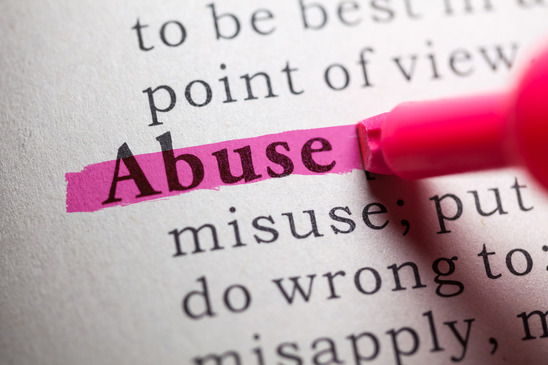CHICAGO, IL – Sexual abuse is a heinous crime that has long-lasting effects on the victim. The impact of such abuse is both physical and emotional and can cause severe mental trauma in the long run.
What is Sexual Abuse?
The law clearly defines sexual abuse as any sexual act performed against another person without their consent. This ranges from inappropriate touching to child molestation to rape. In Illinois, sexual abuse and assault are crimes punishable by jail or prison time, fines, mandatory sex offender registration and other penalties.
Examples of Sexual Abuse
Some examples of sexual abuse include:
- Inappropriate touching includes things like fondling, groping or sexually touching another person against their will.
- Sexual harassment which includes unwanted sexual comments, advances, touching and indirect actions leading to a hostile work environment.
- Molestation/child molestation involving sexual advances or touching.
- Sexual assault that includes anyone who engages in sexual activity with another person through force (including the use of a deadly weapon) or the threat of force has committed sexual assault.
- Sexual battery which is making sexual contact with another person through force/threat of force, by using a deadly weapon or when the victim is mentally disabled.
- Rape which constitutes sexual intercourse without the consent of the other person or when a victim is unable to give consent.
- Statutory rape which is sexual intercourse without consent.
Sexual Violence Statistics
The Centers for Disease Control and Prevention (CDC) reported the following:
- Sexual violence is common. Over 1 in 2 women and almost 1 in 3 men have experienced sexual violence involving physical contact during their lifetimes. 1 in 4 women and about 1 in 26 men have experienced completed or attempted rape. 1 in 3 women and about 1 in 9 men experienced sexual harassment in a public place.
- Sexual violence starts early. More than 4 in 5 female rape survivors reported that they were first raped before age 25, and almost half were first raped as a minor (i.e., before age 18). Nearly 8 in 10 male rape survivors reported that they were made to penetrate someone before age 25, and about 4 in 10 were first made to penetrate as a minor.
- Sexual violence disproportionately affects some age groups. Women and racial and ethnic minority groups experience a higher burden of sexual violence. For example, more than 2 in 5 non-Hispanic American Indian or Alaska Native and non-Hispanic multiracial women were raped in their lifetime.
- Sexual violence is costly. Recent estimates put the lifetime cost of rape at $122,461 per survivor, including medical costs, lost productivity, criminal justice activities and other costs.
What are the Long-Term Effects of Sexual Violence?
There are various long-term physical effects that can happen after sexual violence has taken place. One of the most immediate and noticeable effects of sexual abuse is the risk of contracting sexually transmitted diseases (STDs) which can cause long-term damage to the body if left untreated. Apart from STDs, as a result of the physical trauma, sexual abuse victims are also at risk of increased:
- Chronic pain manifests as headaches, muscle aches and joint pain. These symptoms can be exacerbated by stress and anxiety making them difficult to manage.
- Gastrointestinal issues like irritable bowel syndrome (IBS), constipation and diarrhea. These issues can be triggered by anxiety and stress, which can be common after experiencing trauma.
- Sexual dysfunction or hypersexuality.
- Substance abuse can be a dangerous cycle and exacerbate mental health issues and lead to physical harm.
- Chronic illnesses such as fibromyalgia, chronic fatigue syndrome and autoimmune disorders. While the links between trauma and chronic illness are not fully understood, it is important to recognize the impact that sexual abuse can have on physical health.
What are the Long-Term Emotional and Mental Effects?
Sexual abuse can have profound and long-lasting effects on a person’s emotional well-being. The trauma caused by sexual abuse can stay with a person for years or even a lifetime. A victim of sexual abuse may experience the following:
- Difficulty with trusting people which can manifest in a variety of ways, such as difficulty with intimate relationships or reluctance to share personal information with others. Survivors may struggle with feelings of betrayal and may worry about the potential for further abuse.
- Depression, anxiety and other mood disorders are common among survivors. These symptoms can be difficult to manage and may last long after the abuse has ended.
- Guilt and shame which can lead to a sense of worthlessness and may cause survivors to withdraw from social interactions.
- Substance abuse is a way many survivors self-medicate to cope with the overwhelming emotions caused by the abuse.
- Post-Traumatic Stress Disorder (PTSD) can develop after experiencing or witnessing a traumatic event. Survivors of sexual abuse are a high risk of developing PTSD. Symptoms may include flashbacks, nightmares and intense anxiety.
Importance of Hiring a Compassionate Sexual Abuse Attorney in Chicago, Illinois
A compassionate sexual abuse attorney can help you fight for justice and compensation. They understand the long-term effects of sexual abuse and can help you navigate the legal system. A compassionate attorney will also provide you with the emotional support needed to heal from the trauma.
The idea of standing up to your abuser may be intimidating or even downright frightening. At the Dinizulu Law Group, we understand this. When you put our experienced, aggressive, and powerful Chicago, Illinois sexual abuse attorneys on your side, you have an entire team of dedicated advocates fighting for you. Fill out this form or call us at (312) 384-1920 for a free consultation.



